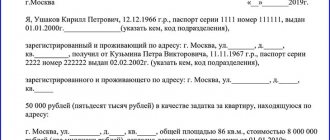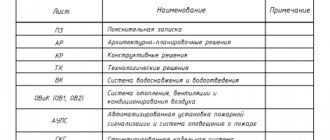What a security deposit is is explained by the Civil Code of the Russian Federation (Articles 381.1, 381.2). This financial instrument is actively used when concluding lease agreements, purchase and sale of real estate, rental and other agreements. The main purpose of a security payment is to minimize the risk of causing losses to one of the parties to the transaction in the event of a violation of the terms of the contract by the counterparty. This method of security applies to concluded agreements and to contracts that are planned to be concluded in the future.
Basic Concepts
A monetary obligation, which one party undertakes to provide to the other party as security for obligations assumed, can be provided even for those obligations that arise only in the future.
This definition is enshrined in Article 381.1 of the Civil Code of the Russian Federation, answering the question of what a security deposit is. If certain circumstances occur, the party who received the security payment (SP) has the right to offset the funds against the fulfillment of the obligations for which the funds were received. Consequently, such a tranche acts as a deposit made to the creditor’s current account, from which funds can be withdrawn in favor of fulfilling accepted obligations.
A security deposit as a way to ensure the fulfillment of obligations is often used when concluding lease agreements. For example, the tenant agrees to pay monthly rent to the owner of the property. If the monthly tranche is not received on time, the lessor has the right to write off unpaid obligations from the deposit. The lessor also has the right to write off the cost of damaged property, if such was provided for in the lease agreement.
Let's summarize
When paying an advance, excess funds or the entire advance are subject to return if the obligations have not been fulfilled.
In case of failure to fulfill obligations, the deposit is returned in double amount or retained by the deposit recipient. To prevent regulatory authorities from reclassifying the deposit as an advance, it must be written down in a separate agreement.
The security payment is returned in full if the circumstances do not occur or the obligations are not fulfilled.
We'll talk more about tax savings for all types of advance payments in the next article.
Conditions of use
This type of security has significant advantages for the lender. After all, the money to secure the agreements that will only be executed has already been made available, for example, in cash at the cash desk or by bank transfer to a current account. In case of violation, there is no need to demand execution of the contract in pre-trial or judicial proceedings. The lender simply writes off the money to pay off the default.
The security payment of the Civil Code of the Russian Federation can be established in the amount of:
- a specific fixed amount, the amount of which is determined by agreement of the parties;
- percentage, part of a specific constant value, for example, of a set amount of rent.
It is worth noting that in some cases the lender may establish a permanent amount of the financial guarantee. Consequently, in cases where the creditor has satisfied his claims, the debtor must restore the amount of security to the indicated value (clause 3 of Article 381.1 of the Civil Code of the Russian Federation).
If the contract is fulfilled and no violations are established, then the creditor must return the entire amount of the security. If violations are detected, the lender writes off part of the funds to repay unfulfilled agreements (penalties, delays, fines). The balance is returned to the debtor after full execution of the contract, unless otherwise provided by the terms of the agreement. Please note that under the terms of the contract, the parties have the right to specify conditions upon the occurrence of which the security payment will not be returned.
Article 381.1 of the Civil Code of the Russian Federation. Security payment (current version)
The use of security payments within the framework of certain civil obligations is often due to a situation where counterparties do not fully trust each other. A participant in a contractual obligation, for example, a contractor under a construction contract, often cannot reliably confirm the real level of his professionalism or integrity (the ability to properly perform work) or solvency (if necessary, bear responsibility to the customer in case of improper performance of the obligation). Making a security payment can remove or reduce the corresponding risk of the counterparty who is ready to take the first step: provide raw materials, materials for performing work, expensive equipment for its installation, etc.
4. A security payment should be distinguished from other methods of ensuring the fulfillment of an obligation and other interim measures.
A security payment differs from a pledge in that the object of the security payment is homogeneous to the object of the secured obligation, and unlike the object of the pledge, it can be paid only in a monetary amount or in the form of shares, bonds, other securities or things defined by generic characteristics that are subject to transfer under the secured obligation. Accordingly, the collateral regime, which presupposes the procedure of foreclosure on the pledged object to satisfy the requirements of the pledge holder, is simply not applicable here.
A security deposit should also be distinguished from a deposit. It, like the deposit, performs a payment function, since it is deposited towards future payments. But the deposit is given by the party with whom payments are due under the contract: the customer, the tenant, the buyer, etc. The amounts of money are paid by her in advance in favor of such another person who is obliged to perform certain actions for her, such as: transfer property, perform work, provide a service etc. The security payment is made not for goods, work or services, but to cover only the possible, probable, potential monetary obligations of the person who made such a payment. The likelihood that the very basis for payment will arise prevents the recognition of such funds as a deposit. In addition, the security function of the deposit is characterized by a bilateral nature (if the party that received the deposit is responsible for failure to fulfill the contract, it is obliged to pay the other party double the amount of the deposit - clause 2 of Article 381 of the Civil Code of the Russian Federation). A security payment ensures only the obligations of the party that makes it.
A security payment also differs from an advance payment, although it is also included in future payments (payment function). However, unlike a security payment, an advance does not perform a security function. It is paid by one person in favor of another person who (as when making a deposit) is obliged to perform certain actions for him, such as: transfer property, perform work, provide a service, etc. Moreover, regardless of which party is responsible for failure to fulfill an obligation, the party that issued the advance has the right to demand its return in all cases of non-fulfillment of the contract. The security payment, as already noted, is made not for goods, work or services, but to cover only the possible, probable monetary obligations of the person who made such a payment. The probabilistic nature of the occurrence of the very basis for payment, including the obligation to compensate for losses or pay a penalty in the event of a breach of contract, as in the case of a deposit, prevents the recognition of such funds as an advance.
A security payment should not be identified with such a term of the contract as a guarantee lien. This condition is often used in contracts of purchase and sale, paid services or contract. According to the guarantee retention clause, the party to the contract (buyer, customer), obligated to pay a certain amount of money for certain actions performed for it by the counterparty, withholds (does not pay, but retains) from the amounts due to the creditor a predetermined part of the payment for goods, work or services. The retained part of the fee is paid after a certain period, for example, after the end of the warranty period for the product or the result of the work performed. Its further withholding is permissible only if, within a specified period, defects in the product, the result of work, etc. are identified. In this case, the buyer’s (customer’s) expenses for their elimination can be reimbursed from the amounts due to the seller (contractor), i.e. due to the amounts of the guarantee retention. In other words, the claims of one party to the contract for compensation for losses in connection with improper fulfillment of an obligation by the counterparty will be offset against the claim of the other party for payment for goods, results of work or services rendered. Unlike the amount of the guarantee lien, the security payment, firstly, does not represent part of the payment for certain actions performed by the counterparty; its payment ensures that only possible, probable, potential monetary obligations of the person who made such payment are covered; secondly, as has been repeatedly noted, it is entered in advance, i.e. before the occurrence of circumstances provided for in the contract as the basis for payment to the creditor, and is not withheld from the amounts due to the creditor.
5. The fate of the security payment depends on the occurrence or non-occurrence of a monetary obligation, secured in advance by its payment by one of the parties to the agreement.
According to para. 2 points 1 art. 381.1 of the Civil Code of the Russian Federation, the security payment performs a payment function, since upon the occurrence of circumstances provided for by the contract, the amount of the security payment is “counted” towards the fulfillment of the corresponding obligation by the party who received the security payment. This party, being a creditor under an obligation secured in advance, thereby exercises its right to count against the fulfillment of the corresponding obligation the amount of the security payment due to it in an amount equal to the property claims. The creditor does not need to go to court for this. The amount exceeding the amount of monetary claims due to the creditor is subject to return to the counterparty. See: paragraph 29 of the Review of judicial practice of application of the legislation of the Russian Federation on the contract system in the field of procurement of goods, works, services to meet state and municipal needs.
The Code does not define the procedure for “counting” monetary amounts. At the same time, various court decisions appear in judicial practice, which both connect and do not connect the rules for “counting off” the security deposit with the rules of Art. 410 of the Civil Code of the Russian Federation on the termination of an obligation by offsetting a counterclaim of a similar nature. Thus, according to the Resolution of the Nineteenth Arbitration Court of Appeal dated July 25, 2021 N 19AP-2467/2016 in case N A14-17501/2015, the court, using the example of a security payment made by the contractor in favor of the customer, decided to return the security payment to the contractor who violated the deadlines works, since the court was not presented with evidence of an application to the contractor to offset similar counterclaims. See also: Resolution of the Fifth Arbitration Court of Appeal dated April 21, 2021 No. 05AP-2028/2016 in case No. A51-27586/2015.
There are also directly opposite decisions, according to which the courts consider it erroneous to correlate the term “counted” with the term “offset” provided for in Art. 410 of the Civil Code of the Russian Federation (see, for example, Resolution of the Thirteenth Arbitration Court of Appeal dated June 3, 2021 N 13AP-5839/2016 in case N A26-10137/2015. In accordance with this position of the courts, when making a security payment, the creditor should not send any notifications to the counterparty who provided the security payment, prove the amount of losses, present claims to the debtor for compensation for losses or penalties, etc.
6. According to paragraph 2 of Art. 381 of the Civil Code of the Russian Federation, if a monetary obligation secured in advance arose, but before the implementation of the “offset” was terminated (for example, the customer under a construction contract refused to fulfill the contract on the basis of Article 717 of the Civil Code of the Russian Federation not due to circumstances indicating unlawful behavior of the contractor), equally, if during the period for which the security payment is provided, the circumstances that are associated with the emergence of the secured monetary obligation do not occur, the received security payment is subject to return, unless otherwise provided by agreement of the parties. See: Ruling of the Supreme Court of the Russian Federation of March 28, 2021 N 310-ES18-1605. The text of the Definition has not been officially published. Entry date 02/24/2019. A different understanding would result in unjust enrichment of the party receiving the security payment.
7. According to paragraph 3 of Art. 381.1 of the Civil Code of the Russian Federation “the agreement may provide for the obligation of the relevant party” to make up for the security payment or partially return it upon the occurrence of certain circumstances. It seems that the establishment of such a rule should be interpreted as if a proportional increase or partial return of the security payment is possible only by agreement of the parties, formalized by an agreement or an additional agreement to amend it. Thus, under a construction contract, the contractor provided the customer with a security payment to secure the obligation to compensate for losses that may be caused to the customer during the installation of equipment owned by the customer. During the execution of the contract, the installed equipment was damaged and the customer, as a creditor, exercised its right to count the security payment or part thereof against damages for the resulting secured obligation. At the same time, if the work continues and the contract contains a condition on the reimbursable nature of the security payment, then the customer has the right to demand a proportional payment before making the security payment in order to restore the amount of the security in case of repeated occurrence of the relevant circumstances. On the contrary, if during the execution of the contract the parties reach an agreement to reduce the volume of work performed and the contract contains a provision for the partial return of the security payment upon the occurrence of this circumstance, then the contractor has the right to demand a reduction in the amount of the security payment and the return of part of it.
8. Interest established by Art. 317 of the Civil Code of the Russian Federation are payments for the use of funds. Within the meaning of paragraph 4 of Art. 381.1 of the Civil Code of the Russian Federation, unless otherwise provided by the agreement, the accrual of said interest on the amount of the security payment is not allowed. Thus, the Code emphasizes that, as a general rule, the person who received the security payment is not charged a fee for its acquisition. It appears that the parties take into account the period of use of the sums of money received as a security deposit in the price of the contract. At the same time, in the absence of grounds for “counting off” the security payment and its non-repayment by the relevant party, the amount of the debt from the moment of delay in its return is subject to accrual as interest established by clause 1 of Art. 317.1 of the Civil Code of the Russian Federation, and interest, which is a measure of civil liability, established by Art. 395 of the Civil Code of the Russian Federation. See: paragraph 33 of the Resolution of the Plenum of the Supreme Court of the Russian Federation of November 22, 2021 N 54 “On some issues of application of the general provisions of the Civil Code of the Russian Federation on obligations and their execution.”
Transfer of collateral
It is not uncommon for concluded contracts to be fully executed, their validity periods have passed, and payment remains unclaimed. What to do with funds? Everything depends on further circumstances.
If the parties have fulfilled the accepted conditions and do not plan to enter into new contracts, then the guarantee amount must be returned to the debtor. Moreover, the volume of the return is determined on an individual basis, taking into account the agreements specified in the contract. Let us remind you that in certain cases the creditor has the right not to return the money at all.
The repayment period must be specified in the contract, as well as the amount and rules for writing off the security amount. If such conditions are not fixed in the text of the agreement, then the refund must be made no later than 7 days from the date of receipt of the request for the return of the security.
If the parties decide to extend cooperation, then the security payment can be transferred to a new agreement. But only if such a condition is enshrined in the original contract. If there are no agreements, then it is best to return the money, and then enter into a new agreement and re-transfer the security. The second option is to decide the fate of the security deposit by agreement of the parties. For example, by concluding an agreement that the security will be transferred to a new contract.
Why are they discussing it?
An additional guarantee in the employment agreement is necessary to cover possible damages. The provision for additional security is included in contracts:
- about renting expensive property;
- on the rental of residential and non-residential premises as a guarantee of payment of monthly rent;
- with a long-term validity period.
The purpose of the security payment is material compensation for damage that may arise during the execution of the lease agreement. The terms of the agreement stipulate the procedure for using the guarantee:
- in case of damage or loss of property;
- failure to pay the monthly rent;
- in case of violation of other essential terms of the lease agreement.
If you include a clause on a security payment in the contract, be sure to indicate its purpose, amount, procedure for making, using and returning such security.
How it is used
The guarantee is usually paid in the form of cash. It is used only in circumstances the occurrence of which is provided for in the lease agreement. If the tenant violates the terms of the lease, the security is counted as the fulfillment of specific contractual obligations (Part 1 of Article 381.1 of the Civil Code of the Russian Federation).
For an employment agreement, such circumstances are:
- Causing damage to the lessor. Options for causing damage are specified separately in the contract. A security payment is used to cover material and intangible losses.
- Failure to pay rent on time. The security covers the amount that the landlord failed to deposit or pay on time.
If the payer has violated the terms of the rental contract, the lessor notifies him of the use of the security. The official notice must indicate the reason for using the guarantee, its amount and support the transaction with documents.
In some cases, the contribution is used as rent for the last months of the lease. This possibility must be provided for in the terms of the lease agreement.
An independent guarantee (bank guarantee) as a way to ensure the fulfillment of obligations
Since 2015, the old concept of “bank guarantee” has been changed to a new one - “independent guarantee”. The innovation is that it can be offered not only by banking institutions, but also by commercial enterprises. The guarantor assumes the following obligations - at the request of another person, he pays for his obligations to third parties. This guarantee is in writing. The guarantor may not fulfill his obligations only in several cases strictly established by law:
- The lender provided documents that raise questions about the authenticity.
- The obligation turned out to be invalid.
- Absence of a situation specified by agreement to demand payment of the debt.
- The debt is repaid by the debtor himself.
Pledge as a method of securing the fulfillment of obligations
Pledge is considered to be the delivery of property by the debtor to the creditor to secure the obligation. In order to correctly formalize a pledge, it is necessary to conclude an agreement and in it, as accurately as possible, stipulate the subject of the pledge, its price, as well as the specifics of the fulfillment of the obligation.
What happens when the debtor breaks the contract? The creditor, the holder of the pledge, gains an advantage over other creditors due to the fact that he can sell the pledged property and cover his losses. The lender will be given the choice of keeping the property or selling it at auction. If, during the sale of property, the creditor received more money than the amount of the pledge, he is obliged to return the difference to the debtor.
I also recommend reading this article
Bankruptcy auctions. Tools and risks
You are an investor and have begun to look closely at such an area as bankruptcy trading. The topic is attractive, but the risks are scary.
Continue reading




